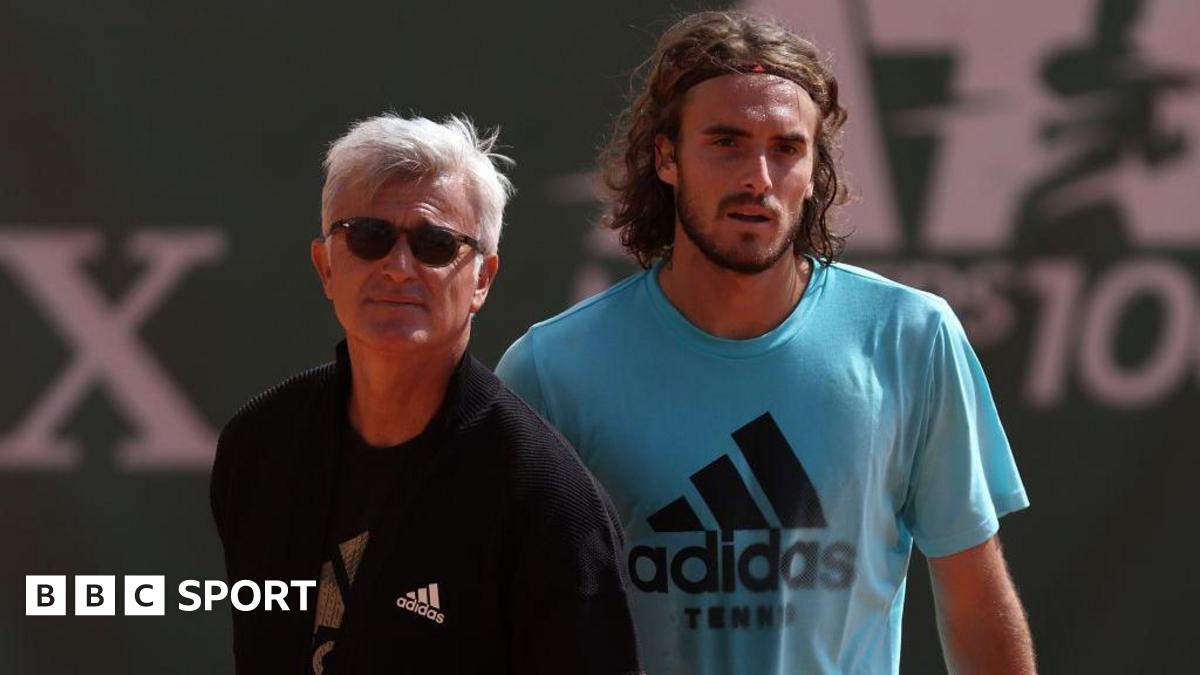The world of professional tennis has once again witnessed a surprising development as Greek star Stefanos Tsitsipas announced the re-appointment of his father, Apostolos Tsitsipas, as his primary coach. This decision follows a remarkably brief and tumultuous partnership with former Wimbledon champion Goran Ivanisevic, signaling a significant shift in the Stefanos Tsitsipas’s strategic approach to his career.
The collaboration with Ivanisevic, a high-profile figure in tennis coaching, commenced less than two months prior to its abrupt conclusion last week. Expectations were initially high, given Ivanisevic’s acclaimed track record, particularly his instrumental role in guiding Novak Djokovic to multiple Grand Slam titles, making this short-lived tenure all the more noteworthy on the ATP Tour.
The brevity of their association was matched by its dramatic ending, highlighted by Ivanisevic’s pointed criticism of Tsitsipas. Following a disappointing first-round exit at Wimbledon, Ivanisevic publicly stated, “I have never seen such an unprepared player in my life.” Such a blunt assessment from a renowned coach underscored the underlying issues that plagued the partnership, questioning Tsitsipas’s commitment to preparation in professional tennis.
In stark contrast, Tsitsipas’s previous era under his father’s full-time guidance saw him achieve remarkable success. Apostolos Tsitsipas had coached his son from a young age, meticulously nurturing his talent and propelling him to a career-high world ranking of number three. This period represented the peak of Tsitsipas’s consistent performance on the global Grand Slam Tennis circuit.
The initial split between father and son in 2024 marked a pivotal moment, after which Tsitsipas experienced a notable decline in his ranking, slipping to number 30. This downward trajectory highlighted the unique bond and influence Apostolos had on his son’s game, with the subsequent period demonstrating the challenges of finding a compatible and effective replacement for such a foundational coaching relationship.
Interestingly, Tsitsipas himself had previously voiced concerns about his father’s intense coaching style, admitting earlier this week that Apostolos “definitely made me lost my control” at times. Despite these past tensions, the Greek player also expressed profound regret over the “messy nature” of their initial breakup, indicating a lingering respect and perhaps an acknowledgment of his father’s irreplaceable role in his development and sports news.
The reunion with Apostolos is now seen as a high-stakes gamble for Tsitsipas, potentially offering a return to the stability and familiar dynamics that once brought him significant triumphs. Whether this renewed partnership can reignite his form, improve his match preparedness, and lead him back to the upper echelons of the ATP Tour and Grand Slam contention remains the central question for fans and analysts alike.






Leave a Reply